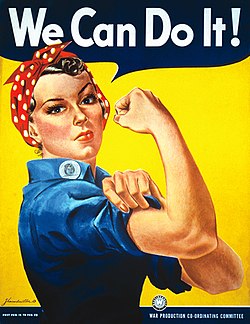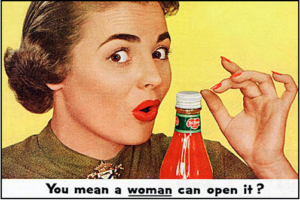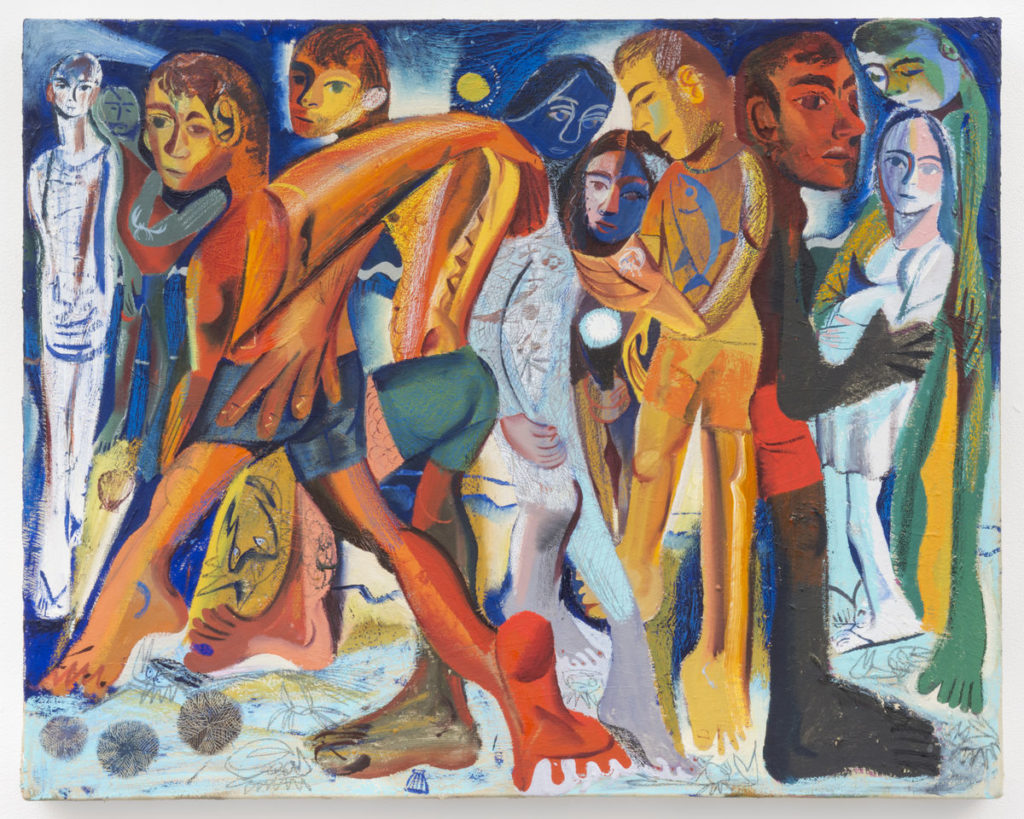In 2004, 60 percent of Americans opposed same-sex marriage. Today, 61 percent support it. One of the most popular candidates in the Democratic Party primaries is an openly gay man and more than half of young people today consider themselves non-heterosexual.
Without a doubt, we’ve come a long way.
Yet, there is a vast disparity between those who have ascended into the highest halls of politics and those who continue to feel the brunt of oppression. It the same country where queer people are CEO’s and in the halls of power, a Black trans girl is forced into sex work to survive, a lesbian is raped as an attempted “cure,” and where trans women like Roxanna Hernandez die in migrant detention centers. LGBTQ+ oppression continues with crippling force, especially for trans people, people of color, and the poor. The rights we have won and the privileges of the few only highlights the misery of the many.
In light of this contradiction, should we think of LGBTQ+ liberation as a ladder? With each new right gained, are queer people closer to liberation? Or is LGBTQ+ oppression inscribed in the shape of society, unshakeable unless we crush the broader capitalist system?
Capitalism, a system based on the exploitation of labor, has created extensive possibilities for human liberation. In fact, LGBTQ+ identities, as we understand them today, are a historical creation of capitalism. Yet, this system cannot deliver on its promises of freedom, liberty and justice for the vast majority of people. For queer people, LGBTQ+ oppression is a product of both capitalist production and reproduction, particularly the alienation of labor and the rigid gender roles required by the nuclear family. Thus, LGBTQ+ liberation, and sexual liberation more broadly, are impossible in the capitalist system; our oppression is irrevocably etched into it. Socialism, on the other hand, would provide the material basis for ending LGBTQ+ oppression.
The Social Construction of Gender and Sexuality
Some human rights advocates argue that LGBTQ+ people existed throughout history: that we deserve rights on the basis of being “born this way.” But the reality is much more complicated than what Marxist theorist John D’Emilio calls the “myth of the eternal homosexual.” Same-sex desires and gender fluidity have existed throughout history and in different cultures around the world, but their social role and social acceptance varied drastically throughout time: in some cultures, sexual relations among the same sex played a ritualistic role, while among other cultures non-binary people had special powers attributed to them.
While pre-capitalist European societies imposed “anti-cross dressing laws” and countless laws against sodomy, feudalism did not have a consolidated LGBTQ+ identity, only criminalized acts. It is the capitalist labor system that, as D’Emilio argues, “allowed large numbers of men and women in the late 20th century to call themselves gay, to see themselves as part of a community similar men and women and to organize politically on the basis of that identity.” In this sense, it would be incorrect to look back in history and label people in entirely different contexts and cultures as LGBTQ+. As argued in the introduction of Hidden from History, “the homosexual role, as we currently think of it, developed in the modern period, but…the modern role is not the only homosexual role possible.”
A historical outlook shouldn’t be limited to examining queer identities: the construction of the modern family, modern gender roles, and the concept of heterosexuality itself are also historical constructions. And what determines these constructions? In a Marxist understanding, the way gender, sexuality, family, and love are organized is based in large part on human relations of production: the system that determines how we get the food we eat, how we organize our communities, and what we do with the majority of our day.
Engels’ “The Origin of the Family, Private Property, and the State” connects the development of production to the development of the patriarchal family, arguing that private property is central to creating the family unit based on women’s subjugation to men. While Engels based his work on inaccurate anthropological studies, his general reflections on the course of history are correct. Capitalism brings about a new kind of familial relationship, as the workplace replaces the home as a site of production; where once goods needed for the family were produced in the home, they are now produced elsewhere and purchased. The home remains a unit of reproduction of the working class: of making sure workers are fed and clothed and children are raised to join the working class. On the other hand, men became atomized wage laborers, able to leave their hometowns and sell their labor elsewhere. Patriarchy is inscribed in this arrangement, with women responsible for unpaid labor in the home, regardless of whether they are also responsible for waged labor.
From this system of private ownership and the selling of labor power arose modern democracy, with the ideals of [individual] freedom and equality: the idea that everyone is equal on the labor market and “free” to sell their labor power to whomever they choose. As John D’Emilio argues, capitalist notions of choice also affected the construction of the family: increasingly, partnerships were based on modern ideals of desire and compatibility.
But “choice” and “freedom” in capitalism are always a double-edged sword. Throughout the history of capitalism, “freedom and equality for all” meant racism, sexism and homo/transphobia inscribed in law and reinforced by the repressive mechanisms of the state. Today, the “freedom” we have is limited by social institutions like schools, families, and churches, which attempt to inculcate people with the “acceptable” sexual and gender norms. Our freedom to make choices is also limited by repressive and racist institutions like the police, prisons, and laws, and confined within the rigid and cutthroat competition of capitalism. It is also as limited by social stigma and oppression.
Colonialism imposed gender and sexual roles in the most brutal and violent ways. The capitalist mode of production was imposed on indigenous communities, with land being stolen and indigenous people used as a cheap workforce. The genocidal actions of colonizers included the targeting of non-binary people by colonial armies, the forced conversion indigenous people to Catholicism and the boarding schools that beat normative gender roles into indigenous people.
But capitalist ideas about the right to make choices in our lives opened the possibility of “choosing” to live in same-sex partnership or as a different gender than the one assigned at birth by the mid 19th century. John D’Emilio argues, “In divesting the household from its economic independence and fostering a separation of sexuality from procreation, capitalism created conditions that allow some men and women to organize a personal life around their erotic/emotional attraction to their own sex.” Likewise, Susan Stryker argues in Transgender History that the same dynamic that D’Emilio describes for “homosexuals” in capitalism also applied to trans people, as people had freedom to relocate outside their community, making it possible for them to create a life for themselves as a gender not assigned at birth.
As capitalism progressed, oppressed people have fought for the equal rights that capitalism promised. Many of the clear legislative markers of inequality were defeated by oppressed people’s movement: in the United States, for example, women and people of color have almost entirely achieved equality before the law. But equality in law is not equality in life. Capitalism is often willing to concede formal equality while maintaining the oppressions that are etched into its fabric, as is the case of racism, sexism, homophobia and transphobia.
Capitalist Reproduction and Sexual Misery
In capitalism, the family unit has its roots in a patriarchal system that preceded it. The family is based on heteronormative gender roles, supposedly grounded in “science” and “biology.” Women supposedly have a biological inclination for reproductive labor, like cooking, cleaning, raising children, and washing clothes. The “woman’s role” in unpaid domestic labor is essential to keeping the wheels of capitalism turning. That is why the capitalist system is enormously invested in gender roles and particularly in the unpaid childcare and housework that occur within the family sphere. After all, it would cut into profits if capitalists had to pay for the reproduction of the working class. The ideology that women are (biologically) destined to be mothers and caregivers has stubbornly persisted despite the abundant counterexamples in our society, from same-sex couples to women who don’t give birth, stay-at-home dads, and other non-traditional models. It has persisted despite the fact that Black women have, since the beginnings of capitalism, been forced into the most backbreaking and abusive work alongside Black men. In fact, this has been used to pathologize Black people and argue that Black people could escape poverty through the nuclear family, rather than by addressing institutional racism, fighting for reparations etc. Although the family and gender roles have become more fluid since the women’s liberation movement and the LGBTQ+ rights movement, the cis-heteronormative family model has remained, perpetuating the oppression of queer people.
Capitalist ideology says that romantic familial partnerships should be chosen based on love. In reality, there are immense economic incentives to find a partner to split the bills with and to stay in relationships that are at best boring and at worst violent. This is especially true for women who are paid less for the same labor and particularly for women of color and working class women. The structure is functional to capitalism by creating an atmosphere in which each family is out for themselves, seeking not the best for society but for their own “loved ones”.
Alongside the economic necessity of the family, capitalism promotes a romantic familial ideology. From the time we are born, we are indoctrinated to our “proper” gender roles and to the fallacy that one romantic partner can abate the alienation of capitalism and make one feel whole and complete–a message especially targeted at women. The traditional family unit can be a place of support in the midst of an alienating and isolating world, while at the same time being unit of sexual misery imposed by monogamy. In The Sexual Revolution, Marxist sex researcher Wilhelm Reich argues that:
The contradiction in the institution of marriage results from the conflict between sexual and economic interests in marriage… Since it is unlikely—sex-economically impossible—that someone who leads a completely gratifying sexual life will subject himself to the conditions of marital morality (only one partner, for life) the first request is a deep seated repression of sexual needs, particularly by the woman.
The family is a necessary economic unit that comes into conflict with our sexual desires. The structure of the family is, as Reich makes clear, a structure for the repression of desire, and I would add the repression of same-sex desire and gender exploration.
Yet the model “traditional” family is elusive for the vast majority of the working class: no private property can be passed down, no rigid gender roles can be imposed on women who must enter the workforce, no “innocent childhood” for working-class kids who get jobs too young or who must parent younger siblings. It is even more elusive for families broken up by mass imprisonment, deportation or forced immigration due to western imperialism. Wealthy women act as managers organizing other women, usually Black, brown and/or immigrant to take up domestic work in the home. As more and more women enter the workforce, both as a product of the women’s liberation movement and as a product of the eradication of (men’s) family wage, the traditional family unit seems to be buckling under the weight of capitalists’ quest for profits.
The contradictory aspects of the nuclear family, as it both holds up and is destroyed by capitalism, create the conditions for a “pro-family” ideological offensive, usually based on a false biological determinism. Politicians admonish parents (usually mothers or Black fathers) for not being more present in their children’s lives, and the right-wing mourns the disintegration of the family. The state blames the supposed breakdown of the family for all social ills: gun violence, poor education, an increase in childhood obesity etc. Both Democrats and Republicans are quick to point the finger at the family, while ignoring how capitalist economic conditions have always undermined the family and how the present crisis of social reproduction is a direct product of capitalist crisis.
LGBTQ+ Oppression and the Bourgeois Family
LGBTQ+ people demonstrate the fallacy of biological determinism upon which the very concept of the patriarchal family unit rests. Although the dishonesty of biological determinism is already demonstrated by women in the workplace, adoption, in-vitro fertilization, and elsewhere, LGBTQ+ people have been especially singled out by the right wing for their role in “destroying the traditional family.”
And on some level, that’s true. LGBTQ+ demonstrate that people who are assigned female at birth aren’t necessarily women. People who are women aren’t necessarily attracted to men, and they aren’t necessarily nurturing mothers, biologically driven to tend a house. These inconvenient facts are why it is so important to capitalism to oppress and marginalize LGBTQ+ people by claiming that we are not “normal.”
A number of American institutions are especially deeply invested in traditional models of family and gender—models that have not been significantly altered by the marginal integration of some same-sex couples. Although much has changed, a walk down the kids’ aisle in a store demonstrates just how prevalent gender roles still are. Christianity preaches the importance of the family unit and in most churches, that same sex relationships are a sin. Schools also help to prop up gender norms by demanding that, for example, kids line up for the bathroom based on whether they are boys or girls as defined by the school—and many won’t let trans kids use the bathroom that corresponds to their gender.
And yet LGBTQ+ people entering the mainstream has not destroyed the family. The systems of repression of same-sex desire and gender exploration are still very much in place, despite the partial normalization of gay and lesbian identities. But this normalization has meant the creation of a multi-billion dollar market niche, from gay cruises to gay pride flags to rainbow Adidas sneakers. This normalization has been permitted only to the extent that it does not threaten the underlying cis-hetero-patriarchal system: e.g., as long as the family unit can still serve as a building block of capitalist society, it is acceptable for two men to marry.
This selective normalization has functioned alongside the domestication of the most transgressive aspects of the LGBTQ+ movement, from its anti-police roots at Stonewall to the overt sexuality and rejection of heteronormativity among the more radical queer movement. Normalization also came in tandem with the demolition of non-commodified spaces for queer socializing: places for mostly queer people of color to socialize, flirt, and fuck, such as The Piers in New York City. At the Piers and all over the country, public spaces frequented by mostly queer people of color have been policed and gentrified.
As French Trotskyist Jean Nicolas argued, “For even if the bourgeoisie can grant gays a status of formal equality with straights, and even go so far as to institutionalize gay couples—reinforcing in this way the illusion of gay identity—it would be infinitely more difficult for it to establish real equality. This would mean recognizing the homosexual component in the whole of the social organism: it would mean so radical a challenge to male status and virility that it would lead to a deep upheaval in the family and the whole of bourgeois culture.” To fully integrate LGBTQ+ desires and genders into society would necessitate a shift, not only in some social attitudes, but in the social system.
Capitalist Production Produces Sexual Misery
But the oppression of LGBTQ+ people is not only part and parcel with capitalist social reproduction, but part of the sexual misery inscribed in capitalist production. The system relies on exploiting the vast majority of people who own nothing but their own bodies and thus have only their labor power to sell on the market. This is the material basis for alienation and sexual misery for the vast majority of the population.
As Marx explains in the “Economic and Philosophical Manuscripts”: “Labor is external to the worker, i.e., it does not belong to his intrinsic nature; that in his work, therefore, he does not affirm himself but denies himself, does not feel content but unhappy, does not develop freely his physical and mental energy but mortifies his body and ruins his mind.” This is alienation. Most people spend the day negating, repressing and ignoring their desires, creativity, and ideas. Workers spend most of the day ruining their bodies and minds in ways that cannot be recovered. And it is undocumented immigrants and people of color who often have the most backbreaking and alienated labor. Gender and sexual misery are derived from these material conditions of everyday life: they derive, that is, from the alienated work we do for most of the day. But alienation does not stop at the workplace; it dominates our lives and psyches, spilling over into sexuality.
And then there is the lack of time; there are simply not enough hours in the day to work, rest, raise children, and establish intimate relationships, whether sexual in nature or not. After a day of alienated labor and denial of pleasure, it is difficult to break that alienation and build a meaningful connection with ourselves and others during the few exhausted hours after work.
But the labor market does more than wreck our bodies and eat away at our time. The capitalist ideological machine links particular gender presentations and performances to being productive citizens in ways that are linked to the needs of the labor market. As a small example, there are only 10 years separating these two ads:


The first ad is a reflection of a historical moment when women were needed for industrial labor because so many men were abroad fighting in World War II; the second ad was the product of a new economy based on the massive production of cheap commodities and demanded that women, having been expelled from the labor market, return to the home. And thus in the span of 10 years, women went from flexing their muscles to being unable to open a ketchup bottle.
Similarly, the construction of the male breadwinner who sacrifices for his family without complaint has been immensely profitable to capitalism. For example, as Alan Sears explains in Body Politics, in the early 20th century Ford promoted “masculine pride grounded in providing for dependent family members and the ability to endure difficult, painful and tedious work.” Racialized constructions of gender also hold up the capitalist system, from constructing Black men as criminal to Black women as strong— creating a hyper-exploitable labor force inside and outside of the prison system.
Not complying with these gender roles often meant a social and sometimes physically disciplining of LGBTQ+ people. These rigid and socially imposed gender roles are not conducive to personal expression or exploration; they are part of a regime of gender and sexual repression for all people, especially those of us who are women and/or LGBTQ+.
The unique capitalist mix of freedom and repression creates a system of sexual misery for most people. In the late 60’s French Trotskyist Jean Nicolas wrote that the stigma against “homosexual” people plays the role of throwing queer people out of the labor market and that this mechanism has a disciplining effect on “heterosexual” identified people who repress “homosexual” desire. After all, those who do not conform to society’s narrow and prescribed roles are marginalized within the mainstream labor market.
Even today, throughout the United States, gender-nonconforming people, and even some gay or lesbian people, are kept from certain jobs, denied promotions, and discriminated against on the job. Many who do not fit social standards are rejected entirely from jobs, as is the case with countless trans people of color. Trans people, especially trans people of color, often serve as an unemployed or underemployed reserve army of labor. This disciplines everyone’s desires; it means that a whole range of gender and sexual experiences are closed off to the majority of the population, forced into shame and secrecy due to the continued marginalization of LGBTQ+ people.
Socialism and Sexual Liberation
LGBTQ+ oppression is deeply connected to the generalized misery imposed by the nuclear family unit and by the alienation of modern labor. Even if some gay men (and even fewer lesbians) can ascend the corporate and political ladder, the marginalization of LGBTQ+ people is inscribed in the productive and reproductive relations of capitalism, making a gradual accumulation of rights insufficient for LGBTQ+ liberation. No matter how many laws are passed, the oppression of LGBTQ+ people, and more broadly the repression of sexuality, cannot be resolved within this system. And therefore, the destruction of the family, as well as the destruction of the capitalist system of alienated production, are required for LGBTQ+ liberation; socialism is necessary for queer liberation.
As far back as the Communist Manifesto, Marx and Engels posed the end of the family as an important part of socialist politics. They did not mean that socialism requires the end of love or romance, but rather the end of the family as an economic and political unit. It would make sure that no one’s survival would be tied to remaining in a romantic relationship: the end of the family is also about providing the material security to be able to remain without a partner or to leave a harmful partner.
The Bolsheviks, for example, took up this issue wholeheartedly. They expected the family, like the state, to wither away as a new society was formed upon a new material basis. In this sense, at least before the Stalinization of the party, the Bolsheviks had a conscious politics of rendering the bourgeois family structure obsolete. In 1917 Russia, they sought to take banal household tasks out of the hands of individuals and put it into the hands of the (now democratically-run) state. However, the politics of Stalin were quite different from those of the Bolsheviks in relation to women as well as to LGBTQ+ people. Theorists who wrote about the end of the family, such as Nikolai Krylenko, were arrested and murdered, while “sodomy “and sex work were criminalized. Stalin’s government worked to enforce traditional gender roles: by 1944, Stalin had organized the “Order of Maternal Glory” to rank women based on how many children they had borne.
These politics were profoundly criticized by Leon Trotsky, the leader of the Left Opposition within the Bolshevik party and, later on, articulated in the formation of the Fourth International. In The Transitional Program, Trotsky writes,
Opportunist organizations by their very nature concentrate their chief attention on the top layers of the working class and therefore ignore both the youth and the women workers. The decay of capitalism, however, deals its heaviest blows to the woman as a wage earner and as a housewife. The sections of the Fourth International should seek bases of support among the most exploited layers of the working class; consequently, among the women workers.
Trotsky is a thread of continuity between the early Bolsheviks and later Marxists who saw the end of the family and socialization of domestic labor as essential for human liberation. In this kind of society, making someone dinner, for example, would be an expression of love and affection—a gift, as opposed to a social responsibility.
In this sense, gender roles and perhaps even gender itself lose their material basis; the social need for gender roles would disappear, leaving open the possibility for multiple genders, no genders, fluid genders, and a new form of sexuality based on this very fluidity.
The reorganization of productive labor would also play a role in ending sexual alienation. Technology creates the conditions for all of us to work fewer hours and continue to produce more than enough for everyone; this is especially clear when taking into account the number of people who are currently unemployed, imprisoned, or working jobs which cannot be considered socially necessary. A socialist, planned economy would free our time and creative potential, which would no longer be stifled by our jobs. Marcuse envisioned this future in Eros and Civilization: “… the quantum of instinctual energy still to be diverted into necessary labor (in turn completely mechanized and rationalized) would be so small that a large area of repressive constraints and modifications, no longer sustained by external forces would collapse… Eros, the life instincts would be released to an unprecedented degree.” Shortened and less grueling work would allow people to feel connected to their bodies, with time to rest, to flirt, and to fuck. For full sexual freedom, our time must be freed from the tyranny of wage labor for the sake of profits we never see.
Communism will liberate us from alienating labor in the productive and reproductive realms. A society built not on profit but on human needs and desires will allow us to spend much of the day in artistic and creative activity rather than mindless work. It will bridge the gap between mental and manual labor, and put all of the technology at the service of building a better society. As Marx argues in German Ideology, the promise of communism is the promise of the lack of commitment and the freedom to dabble. It will make it possible “to do one thing today and another tomorrow, to hunt in the morning, fish in the afternoon, rear cattle in the evening, criticise after dinner, just as I have a mind, without ever becoming hunter, fisherman, herdsman or critic.” Perhaps this freedom will also apply to our genders and sexualities: a butch dyke by day, a drag queen by night, and a dominatrix on the weekend. As the need for gender roles dissipates with the abolition of the family and the socialization of reproductive labor, and as we gain more and more free time, the possibilities for our genders and sexualities, for our gender and sexual liberation, become endless.
And in liberating love and sexuality from the confines of the nuclear family, we would build a new society based on solidarity. Bolshevik leader Alexandra Kollontai begins to explore this idea in Make Way for the Winged Eros, where she argues that, in capitalism, selfishness is essential to the functioning of the system. In a socialist society, society would be built on the foundations of community love. She says,
The new communist society is being built on the principle of comradeship and solidarity. Solidarity is not only an awareness of common interests; it also depends on the intellectual and emotional ties linking the members of the collective. For a social system to be built on solidarity and cooperation, it is essential that people be capable of love and warm emotions. The proletarian ideology, therefore, attempts to educate and encourage every member of the working class to be capable of responding to the distress and needs of other members of the class, of sensitive understanding of others and a penetrate consciousness of the individual’s relationship to the collective. All these ‘warm emotions’—sensitivity, compassion, sympathy, and responsiveness—derive from one source: they are aspects of love, not in the narrow sexual sense but in the broad meaning of the word.
In this future scenario, in which love and desire can truly be free, how will our gender and sexuality function? Will we have new names for the proliferation of new identities that emerge? Or will we need no names at all and live in, as Rosa Luxemburg envisioned, “for a world where we are socially equal, humanly different and totally free”?











